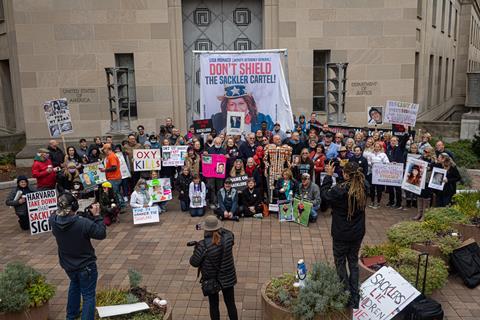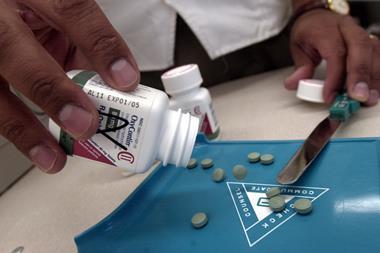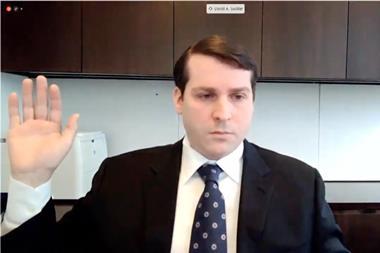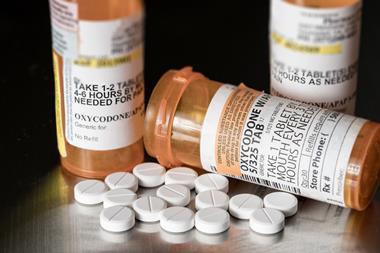
Purdue Pharma’s bankruptcy plan has been rejected by the US Supreme Court, putting opioid litigation settlements in the balance. As part of the bankruptcy arrangement, members of the Sackler family who controlled the company would have been shielded from liability for any civil claims arising from the opioid epidemic. In a split decision, the court ruled this broke bankruptcy law.
While Purdue had filed for bankruptcy, the Sacklers had not. ‘[They] have not placed virtually all their assets on the table for distribution to creditors, yet they seek what essentially amounts to a discharge,’ said Justice Neil Gorsuch. However, this leaves the opioid settlement in limbo, as a key part involved cash from Purdue’s bankruptcy going to states and Native American tribes to fund drug programmes, and to individual victims. In the ruling, Gorsuch said the threat of future lawsuits could compel them to negotiate a deal more favourable to opioid victims.
A robust dissent to the court’s decision, written by Justice Brett Kavanaugh, said that such protection is often both appropriate and essential, particularly in mass-tort bankruptcies like this. ‘[The] decision is wrong on the law and devastating for more than 100,000 opioid victims and their families,’ he said. ‘[They] are deprived of their hard-won relief. And the communities devastated by the opioid crisis are deprived of the funding needed to help prevent and treat opioid addiction.’
The issue dates back to the 1990s, when Purdue started to market the opioid OxyContin as a less addictive alternative for pain relief, earning billions of dollars as a result. In 2007, one of Purdue’s affiliates pleaded guilty in a federal case to misbranding it as less addictive, at which point the Sacklers started to withdraw cash from Purdue. Over the next decade, they took out about $11 billion – about three-quarters of the company’s overall assets.
In the face of thousands of lawsuits, Purdue filed for Chapter 11 bankruptcy relief in 2019. The Sacklers returned about $4.3 billion to the bankruptcy estate in exchange for a judicial order releasing the family from all opioid-related claims against them, existing or in the future, or any pursuit of allegations that their cash withdrawals from the company were fraudulent. The bankruptcy court approved Purdue’s reorganisation plan, including the protection for the Sacklers, despite the objections of many complainants.
This ruling was vacated by the district court, claiming that without the claimants’ consent, the law did not allow it to protect the Sacklers. The next step up the legal ladder, the Second Circuit, reversed this, and put the bankruptcy order back in place with a modified reorganisation plan for Purdue. However, an appeal was filed by the US Trustee, the Justice Department’s bankruptcy watchdog, and it was taken to the Supreme Court.
With the settlement that had taken so long to negotiate having fallen through, it’s unclear what will happen next, although there are indications from both sides that they will re-enter talks. Purdue said the decision will not deter it from using settlement cash for opioid abatement, or the plan to emerge from bankruptcy as a new business whose profits would fund programmes to prevent and treat addiction.
Justice requires that the Sacklers and others who break the law be barred from using bankruptcy as a shield from responsibility
Senator Richard Blumenthal
For their part, the Sackler family said they hope a settlement will be reached. ‘The alternative is costly and chaotic legal proceedings in courtrooms across the country,’ they said in a statement. ‘While we are confident that we would prevail in any future litigation given the profound misrepresentations about our families and the opioid crisis, we continue to believe that a swift negotiated agreement to provide billions of dollars for people and communities in need is the best way forward.’
Connecticut Democratic senator Richard Blumenthal added his voice to the dismay over the impact the decision will have on the victims of the opioid crisis. Last September, he introduced a federal bill aimed at closing the loophole in law that allows people to evade accountability via bankruptcy – the Stop Shielding Assets from Corporate Known Liability by Eliminating Non-Debtor Releases, or Sackler Act.
‘Under the Sacklers, Purdue Pharma destroyed lives and ravaged communities,’ Blumenthal said. ‘Justice requires that the Sacklers and others who break the law be barred from using bankruptcy as a shield from responsibility. The plain fact is these victims direly need justice as soon as possible, and my hope is that their long-awaited and deeply deserved just remedies will be provided as soon as possible. The Sacklers are directly to blame for the delay in compensation to victims by their refusal to acknowledge accountability and their creation of needless obstacles. I will continue to fight for bankruptcy reform so that injustices in the current bankruptcy law will be corrected.’
Justice Kavanaugh also weighed into the need to update bankruptcy law in his dissent. ‘Only Congress can fix the chaos that will now ensue,’ he wrote. ‘The Court’s decision will lead to too much harm for too many people for Congress to sit by idly without at least carefully studying the issue.’

















No comments yet